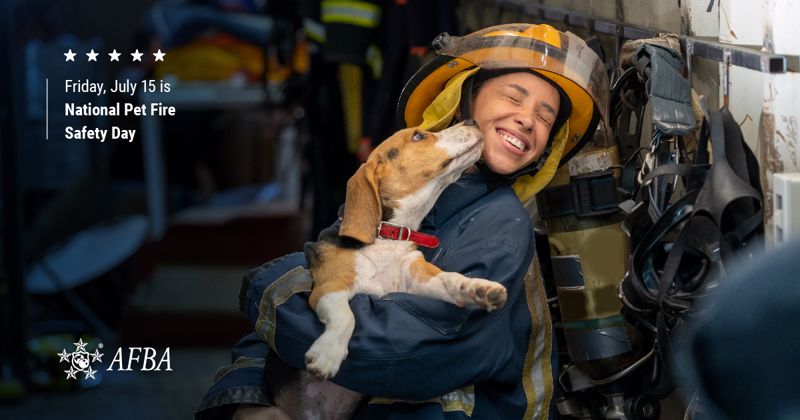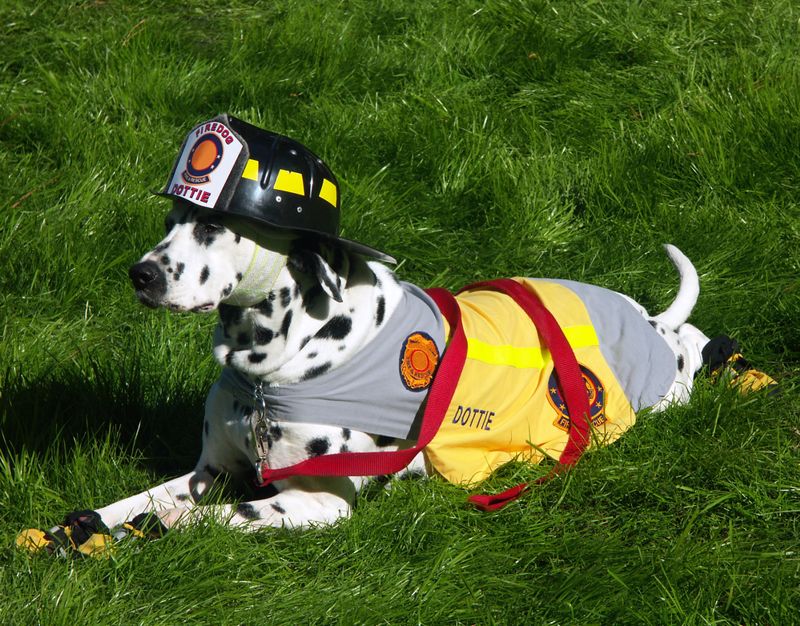Americans love their pets and care for them like they're part of the family. Despite this, many people don't have a safety plan to protect their pets from a potential fire. It can be a scary emergency for anyone, but this is especially true for animals.
What is Pet Fire Safety Day
July 15 is National Pet Fire Safety Day and there's no better time to prepare yourself (and your pet) for an emergency fire situation. This might not be something that has crossed your mind yet, but your fuzzy friend may benefit from having a fire plan in place. The National Fire Protection Association (NRPA) estimates that about 500,000 pets are affected annually by fires.
Use Pet Fire Safety Day as the perfect opportunity to prepare, start fireproofing your home and getting your emergency kit ready to go. Here are some of our best tips and tricks to ensure that your entire family is ready if there is a fire.
Pet fire safety tips
About 1,000 home fires each year are accidentally started by the homeowners' pets, so it's important to make sure your home is pet-proof and pet-friendly. Here are a few tips to make it happen:
- Keep your pets away from cooking equipment like stoves and ovens. They could accidentally create a kitchen fire.
- Use a metal or heat-tempered glass screen on a fireplace to prevent your pets from getting too close. NRPA recommends having a "pet-free zone of at least 3 feet" around fireplaces.
- Protect pets from smaller objects like lit candles and space heaters which can quickly cause a house fire if left unattended.
- Make sure that there are no exposed wires that a pet could chew through and create an electrical fire.
Accidental house fires can easily be created by a dog or a cat, and it's your job as their adoring owner to protect them, your home and your neighborhood from the dangers of a structural fire.

How to prepare your pet for an emergency
The truth is that, even with the best preventative measures in place, accidents and house fires still happen. This is why it's so important to have an emergency plan ready to go in case something does go wrong. First and foremost, formulate a family-wide evacuation plan in advance! The whole family should be aware of and understand the best plan of action to take if a house fire were to occur. Recalling the plan and remaining calm are key initial steps to ensuring you can focus on getting yourself, other family members, and pets out of the house in the safest way possible. If time and the situation clearly permits it, grabbing a pre-made small go-bag of pet essentials will also make things easier for days to come if you are unable to quickly return to your home.
What should you put in a pet go-bag? Keep in mind that different pets have different needs, so pack accordingly. Here are some of the top common items to include:
- At least a few days' worth of food.
- Pet-safe first aid kit (including any essential medications).
- Leash or small carrying case.
NFPA has a household evacuation kit checklist that can help you prepare to the best of your ability. As you put the kits together, be sure to store them in a convenient, well-known location near a main exit point. After the initial evacuation has happened, keep a close eye on your furry friend for any negative health signs. For example, the American Veterinarian Medical Association (AVMA) recommends watching out for these symptoms from pets:
- Coughing.
- Eye irritation.
- Running nose.
- Reduced appetite.
In addition, AVMA also points out that if there is a nearby fire, limit your pet's outdoor activity and watch air quality. This is not just a good tip for animals but is also helpful for people as well.
As fire season falls upon us, take the time to prepare your home and pets for an emergency situation. They may not be able to say, but they'll be thankful for getting to safety alongside their human family members!

